Meet our 2023/24 Pre-doctoral Fellowship award holders
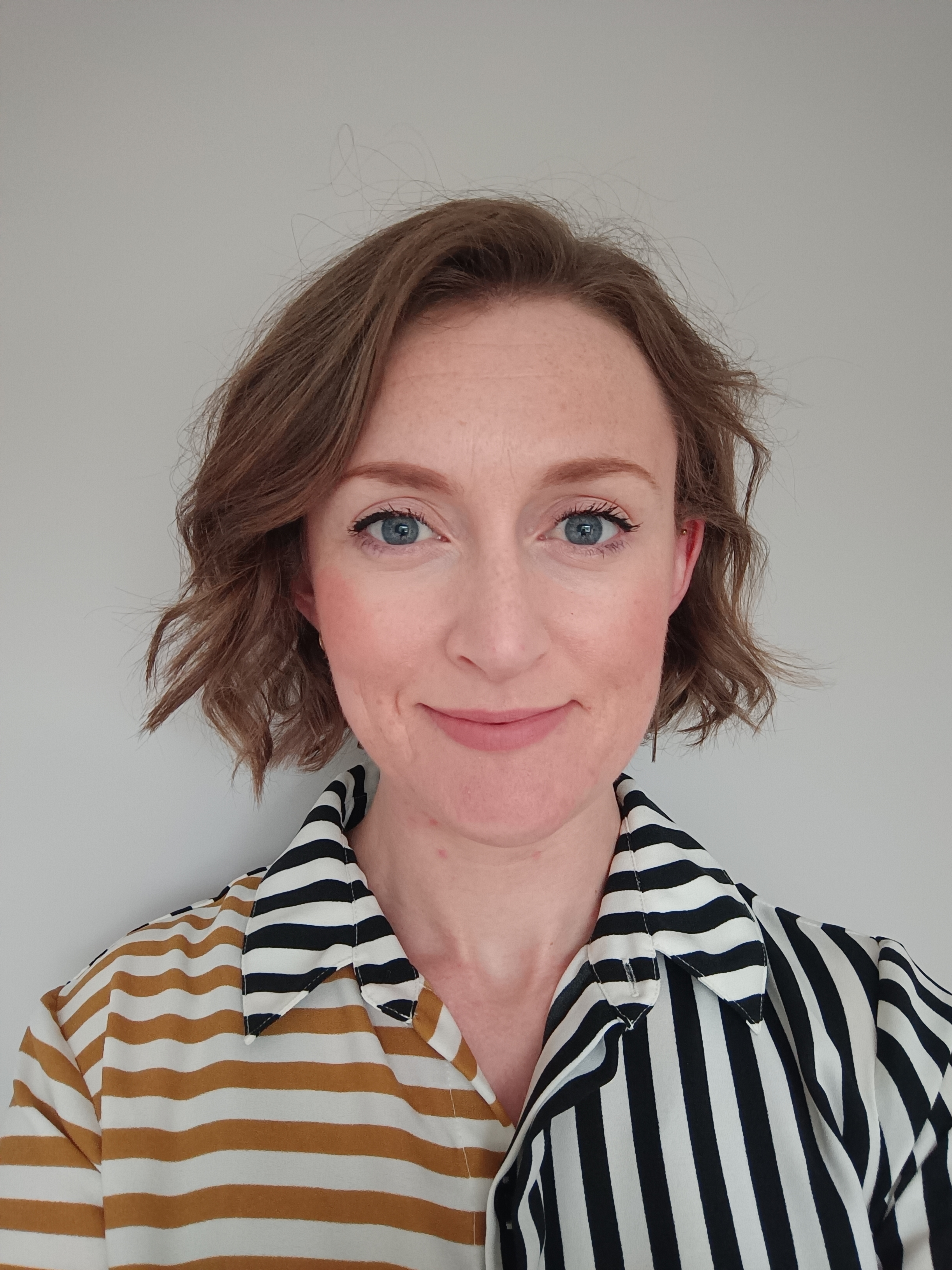 Jessica Keen
Jessica Keen
Pharmacy Lead
NHS North West Genomic Medicines Service Alliance
"What is the evidence for the use of pharmacogenomic panel testing to improve outcomes for patients on treatment for solid tumours, and what are the views and attitudes of oncology professionals, patients and the public to using this to inform prescribing?"
- More info about Jessica and her research interests
What is your current role?
My role is to embed genomic medicine into routine clinical pathways and pharmacy practice, to help ensure equity of access to genomic testing and treatments for patients.
Who are your Pre-doc supervisors?
- Professor Bill Newman
- Dr Chunhu Shi
- Dr Michael Braun
What is your field of research?
Pharmacogenetic panel testing to improve outcomes for oncology patients.
How are you currently involved in research in your job role?
I am a co-investigator and pharmacy lead on a study implementing pharmacogenetics into primary care. Through this work I have also been involved in co-designing clinical decision support systems and pathways with primary care stakeholders. My role also involves design and delivery of genomic medicine transformation projects.
I have recently completed the NIHR Associate PI scheme acting as associate PI for a study looking at genetic factors contributing to severe toxicity to fluoropyrimidine chemotherapy agents (MolGen study, DPYD arm).Why are you interested in research and this ARC-GM Pre-doctoral fellowship?
Pharmacogenetic testing can support improved efficacy and reduced harm from medicines, which are central to the reasons I became a pharmacist. I want to develop my existing research skills to add to the evidence base supporting the delivery of a pharmacogenetic service within the NHS and particularly for patients with solid tumours.
The mentorship, structure and time provided by the ARC-GM pre-doctoral fellowship will give me the opportunity to expand and apply my understanding of research methodology, and help to develop my career as a clinical academic.What research training courses/modules are you accessing as part of your Fellowship?
Cochrane collaboration online learning modules in evidence synthesis.
I also plan to access materials from the Quantitative research design and Statistics MClin Res modules at the University of Manchester.Research question: What is the evidence for the use of pharmacogenomic panel testing to improve outcomes for patients on treatment for solid tumours, and what are the views and attitudes of oncology professionals, patients and the public to using this to inform prescribing?
Research summary: I will complete a scoping review of the literature relating to the implementation of pharmacogenetic panel testing to inform prescribing in patients with solid tumours. This will help to identify an appropriate patient population and the most appropriate and viable outcomes to support enrolment and evaluation of implementation in future research.
A survey of oncology healthcare professionals will explore their attitudes towards use of pharmacogenetic panels to inform prescribing for patients with cancer. Patient and community engagement will explore the perceived benefits and harms of pharmacogenetic testing during cancer management to highlight gaps in knowledge and inform future study design.
I will use the information gathered to refine the research question for my doctoral studies based around the delivery of a pharmacogenetic service in a cancer setting.
 Lisa Barrington
Lisa Barrington
Alcohol Specialist Nurse
Manchester University Hospitals NHS Foundation Trust
"How aspects of identity and self-compassion experiences among female ex-military personnel inform and impact maladaptive coping strategies, particularly in contexts of trauma and alcohol use disorders."
- More info about Lisa and her research interests
What is your current role?
I provide holistic care for people experiencing alcohol-related harms, and training and clinical support around the assessment, triage and medical management of acutely ill patients. I also support pre-registration nurses in my role as Associate Lecturer at MMU providing the opportunity to promote holistic care and reduce alcohol-related stigma.
Who are your Pre-doc supervisors?
- Dr Jan Owens (University of Manchester)
- Professor Neil Greenburg (Kings College London)
- Dr Sarah Ramsey (Manchester University Foundation Trust)
What is your field of research?
I am interested in understanding and sharing the experiences of under-served populations, particularly military veterans, in the context of alcohol use disorders and trauma, with a view to improving treatment pathways and experiences.
How are you currently involved in research in your job role?
I incorporate and disseminate research into clinical practice as both a nurse and associate lecturer which involves teaching, auditing, development and implementation of evidence-based pathways and protocols to improve patient experience and safe practice.
Why are you interested in research and this ARC-GM Pre-doctoral fellowship?
Research involvement informs the development of creative and critical thinking which in turn supports innovative and patient-centred nursing practice. As clinicians, we are ideally placed to develop and evaluate research which incorporates the views of the populations we serve. As such, I am thrilled to have this opportunity to build upon my current research exploring the experiences of alcohol-using military veterans. The time awarded for the fellowship has already enabled me to cultivate valuable relationships and networks incorporating key stakeholder perspectives to develop a meaningful research project.
What research training courses/modules are you accessing as part of your Fellowship?
I am currently studying ‘Introduction to Ethnography’ at the University of Aberdeen
Research question: How aspects of identity and self-compassion experiences among female ex-military personnel inform and impact maladaptive coping strategies, particularly in contexts of trauma and alcohol use disorders.
Research summary: I propose to conduct an in-depth qualitative study of female ex-service personnel with a view to understanding the experiences and factors which impact and inform their coping strategies. My hope for the research is to provide a voice for women whilst improving the knowledge and understanding of healthcare professionals, reducing barriers and improving treatment experiences.
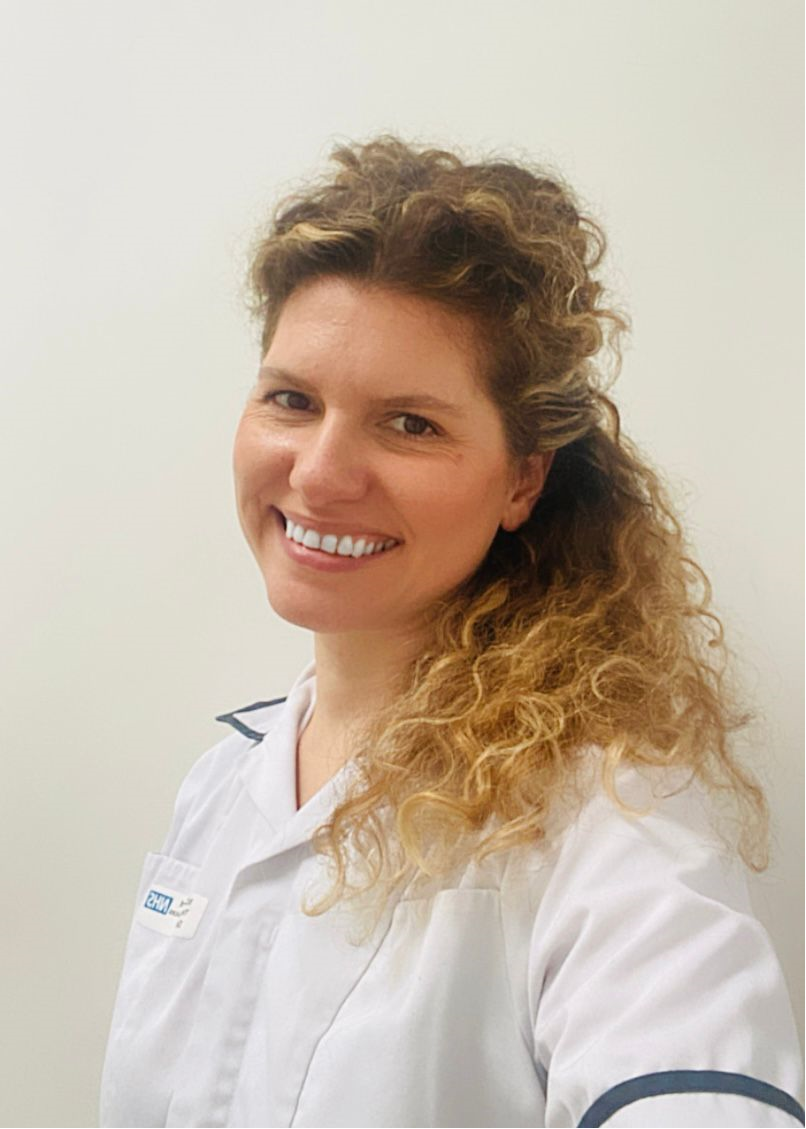 Nicole Vourliotis
Nicole Vourliotis
Clinical Lead Dietitian in Ageing and Complex Medicine (ACM)
Northern Care Allliance NHS Foundation Trust
"A new NCA screening method to test and promote muscle health in older adults"
- More info on Nicole and her research interests
What is your current role?
I'm proud to oversee dietetic care across 13 wards as the clinical lead dietitian in Ageing and Complex Medicine (ACM) at the Salford Care Organisation (SCO). These wards include Emergency Admission, Acute (complex) Medicine, and Care for Older People. My main objective is to fully understand all aspects of ageing, provide tailored, age-friendly nutrition care within our organisation, and expand to broader healthcare settings. I lead a small team that includes dietetic assistants, newly qualified, and senior dietitians. We all share the same vision by focusing on preventing and treating malnutrition in older adults, improving health outcomes to maintain quality of life, and promoting healthier, longer lives. My leadership role allows for the creation of a positive working environment for NHS staff through collaboration with Allied Health Professionals (AHPs) and the wider team to increase productivity. Optimising nutritional screening processes can significantly improve efficiency and lead to cost savings. Ultimately, my unwavering commitment is to deliver top-tier dietetic services that have a tangible impact on the experience of patients, colleagues, visitors, and caregivers.
Who are your Pre-doc supervisors?
Professor Emma Vardy
• Consultant Geriatrician, Northern Care Alliance NHS Foundation trust
• Honorary Clinical Chair, Manchester Academic Health Science Centre
• Deputy themes lead Healthy Ageing theme, NIHR GM ARC
Dr Kate Grimshaw
• Previous Dietetic Manager, Salford Care Organisation, Northern Care Alliance NHS Foundation Trust
• Highly Specialist Dietitian in Allergy, SCO
• Honorary Contract University of Manchester
• Clinical Research Fellow
• MMU
What is your field of research?
My research is not just about acquiring knowledge but changing how malnutrition screening for older adults in hospitals is approached. Addressing this critical area is imperative to enhance nutritional care. I am particularly captivated by the potential of dietetic screening in the early identification of malnutrition and decline in physical function, as this can lay the groundwork for implementing pragmatic strategies and comprehensive care plans. By pinpointing the limitations and deficiencies of current screening methodologies and exploring alternative approaches, my goal is to confront malnutrition issues related to ageing and substantially enhance older adults' health outcomes.
How are you currently involved in research in your job role?
I play a crucial role in improving hospital nutrition and hydration care for older adults. In 2020, I completed the Older Persons Fellowship at Kings College, gaining valuable insights into clinical leadership and quality improvement methods. I led a hydration quality improvement project demonstrating how behavioral change could significantly increase daily fluid intake. I actively participate in nutrition and hydration steering groups and clinical governance discussions to drive new processes and policies. As a clinical lead, I prioritise patient safety by consistently reviewing our nutritional screening methods and pathways to provide accurate guidance to our patients and staff. For instance, we were honoured to receive the Salford Innovation and Improvement Fund 2022-23, implemented in acute medical wards to enhance MUST screening, early nutritional intervention, and dietetic discharge advice using a QI methodology.
Why are you interested in research and this ARC-GM Pre-doctoral fellowship?
The ARC-GM Pre-doctoral fellowship presents an excellent opportunity to further my research abilities and a chance to receive additional funding. Through this fellowship, I aim to demonstrate my commitment to ongoing team development and success as a dietitian leading in research. My pre-doctoral experience prepares me for a PhD project focusing on nutritional care for older people. I am enthusiastic about contributing new scientific evidence to improve current nutritional screening practices for older adults. I actively enhance my research skills and knowledge while establishing stakeholder relationships and networks to develop a meaningful PhD research proposal. The mentorship, supervision, and dedicated research time provided by the ARC-GM pre-doctoral program are crucial in enabling me to advance my research career while maintaining my clinical practice and, ultimately, making a substantial impact in nutritional care for older people.
What research training courses/modules are you accessing as part of your Fellowship?
I access and audit University research modules, attend webinars and events, support PhD students and assist them with their research.
Research question:
My research question has significantly changed since starting the pre-doctoral fellowship and needs further exploration and development.
Research summary:
I aim to assess the effectiveness of current nutritional screening methods in identifying and treating malnutrition in older adults. My main focus is to determine whether these methods identify and treat malnutrition too late and if this delay negatively impacts treatment outcomes. I am determined to contribute value to developing more effective and timely nutritional care strategies for older adults. My ultimate goal is to improve existing nutritional screening methods to enhance the accuracy of screening scores in our emergency assessment unit. Rather than changing the screening tool, I am confident that making the score a more significant trigger will lead to more timely and effective nutritional care plans for older individuals, which can be executed by the multidisciplinary team in the hospital and upon discharge. This would streamline the MUST score and integrate it with other screening tools for frailty and geriatric assessments. This integration may optimise the MUST score consequences by combining it with other screening tools, enhancing the efficiency of nutrition, frailty and geriatric assessments.
To help shape my research question:
- I will conduct a scoping review of the literature on the effectiveness of hospital MUST care plans in the nutritional care process for older adults on EAU at SCO.
- I will use a recent QI project and MUST audit report to demonstrate how increased dietetic input at the ward level can improve MUST score accuracy and how nutritional risk correlates to frailty scores.
- I will also engage with patients to understand their perceptions of the current nutritional screening methods and the importance of nutritional care for older adults admitted to the hospital and at discharge.
Any gaps in knowledge and information gathered will aid in refining my research question for my doctoral application.
 Katy Baldwin
Katy Baldwin
Specialist Speech and Language Therapist
Manchester University NHS Foundation Trust
"HAVEN (Hearing, Accepting and Valuing Every Neurotype): Developing and evaluating neuro-affirmative
intervention groups to support the social and emotional wellbeing of neurodivergent high school
students."
- More info on Katy and her research interests
What is your current role?
Who are your Pre-doc supervisors?
What is your field of research?
How are you currently involved in research in your job role?
Why are you interested in research and this ARC-GM Pre-doctoral fellowship?
What research training courses/modules are you accessing as part of your Fellowship?
Research question:
Research summary:
 Andrew Sharpe
Andrew Sharpe
Operational Early Intervention in Psychosis Clinical Lead
Northern Care Allliance NHS Foundation Trust
"Exploring the role of a multidisciplinary team approach for the secondary prevention of people with diabetes and a foot ulceration"
- More info on Andrew and his research interests
What is your current job title and current role?
I am an Advanced Podiatrist working for Salford Care Organisation, part of the Northern Care Alliance NHS Foundation Trust.
Who are your Pre-doc supervisors?
Professor Jo Dumville
Mr Adam Haque
What is your field of research?
Prevention and management of diabetic foot ulcers
How are you currently involved in research in your job role?
We are a team of about 40 podiatrists in Salford and I head up our department research team. This may involve small scale clinical evaluations or being local P.I. on larger funded projects. This is all new learning to me on the job and it has given me appreciation of what it is I don't know necessarily, which has made me want to improve for my own sake but so I can develop the research capability of the team.
Why are you interested in research and this ARC Pre-doctoral fellowship?
I have a real interest in understanding the 'why' we do what we do. This stems from working in a few different trusts and trying to comprehend why access to treatment can vary so much within a field of practice, this essential generates my interest in research. The ARC-GM pre-doc appealed to me as it offered a combination of the protection of time coupled with the right organisation and people to help me progress further my research interest.
What research training courses/modules are you accessing as part of your Fellowship?
I am undertaking the Critical Appraisal and Evidence Synthesis Masters Module with University of Manchester, I also intend to use the opportunity to review content of research design in quantitative and qualitative reseach.
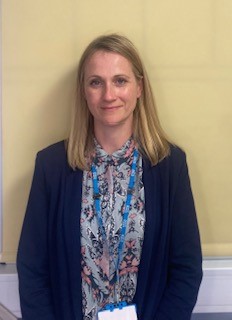 Joanne Ellis
Joanne Ellis
Operational Early Intervention in Psychosis Clinical Lead
Pennine Care NHS Foundation Trust
"Acceptability and feasibility of Cognitive Behavioural Suicide Prevention Therapy developed for people at risk of psychosis with Emotion Dysregulation."
- More info on Joanne and her research interests
Who are your Pre-doc supervisors?
- Professor Katherine Berry - Professor of Clinical Psychology
- Professor Gillian Haddock - Professor of Clinical Psychology
- Dr Daniel Pratt - Clinical Senior Lecturer Clinical Psychology
What is your field of research?
Psychological models to understand and intervene with people at risk of psychosis who are suicidal.
How are you currently involved in research in your job role?
I have protected research time in my job role, and this has enabled me to work as a trial therapist on two large randomised controlled trials. In addition, I was the principal investigator to ensure the conduct of the study adhered to both the research and host trust policies and procedures. I am a member of Pennine Care’s research collaborative allowing me to engage with the local research network and continue to support the delivery of research across the trust.
Why are you interested in Research and this ARC-GM pre-doctoral fellowship?
One in four of us will experience mental health problems in our lifetime. Despite the scale of the challenge, mental health research has lagged in terms of priority, funding, and therefore discoveries. Mental health research can understand the causes of mental health conditions, find new treatments and preventative strategies. The ARC GM pre-doctoral fellowship provides protected time and a support structure of programmed activities to develop my skills as an early career nurse researcher. The strategic aims of ARC GM are focused on finding new and better ways of preventing illness and delivering care, which aligns with my research interests.
I want to use the fellowship to gain a deeper understanding of how to use research in routine care to investigate clinical issues which matter to patients and carers and have the potential to deliver improvements to patient care and outcomes. In particular, innovative psychological interventions which are scalable to increase access to evidence-based treatments that can improve outcomes for individuals often poorly served and marginalised in healthcare and wider society.
Research Question
What are the pathways to suicide in people at risk of psychosis?
Research summary
My research project will consist of four separate studies. I will complete a scoping review of the literature on factors associated with suicidality in people at risk of psychosis. A qualitative study will explore the lived experiences of people at risk of psychosis who experience thoughts about suicide and the interplay between psychotic symptoms, emotion dysregulation, and suicidality.
I will survey healthcare professionals to explore their views on factors that are associated with suicidal thoughts and the perceived benefits and harms of working psychologically with this type of presentation.
Patient and community engagement will explore the relevance of the research question, the acceptability of the proposed research methods, and subsequent interventions.
The final element with be to conduct a case series to trial an adapted cognitive behavioural suicide prevention therapy which will seek to increase access to adaptive emotion regulation strategies.
Training courses
I completed the Research Methods module at the University of Salford in January 2024. I plan to use the second semester to audit the following University of Manchester research modules; Critical Appraisal and Evidence Synthesis then Qualitative Research Design and Analysis.
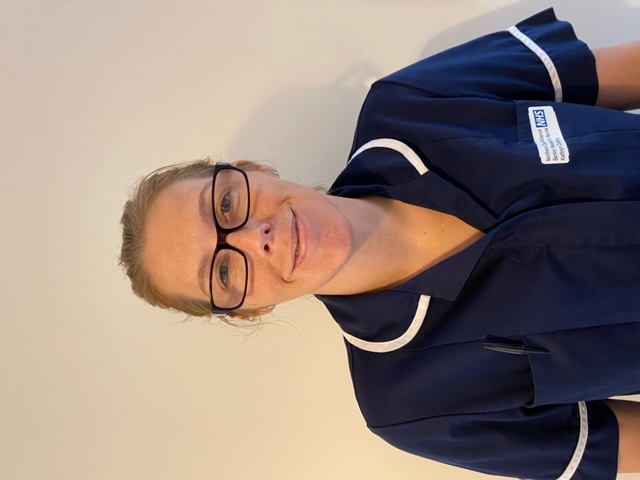 Kathryn Cawley
Kathryn Cawley
Senior Research Nurse
Northern Care Allliance NHS Foundation Trust
"Are the current processes used when recruiting critically unwell adults who are lacking mental capacity into clinical trials acceptable to patients, their families, and the HCP's who are involved in this practice? Do variances in practice occur between organisations and staff when recruiting critically unwell adults who are lacking capacity into clinical trials?
- More info on Kathryn and her research interests
Who are your Pre-doc supervisors?
- Professor Heather Iles-Smith - Professor of Nursing, University of Salford and Northern Care Alliance NHS Group.
- Dr Amy Mathieson - Research Associate NIHR ARC-GM, Implementation Science Theme.
- Professor Paul Dark - NIHR Deputy Medical Director, Professor of Critical Care Medicine, University of Manchester
What is your field of research?
Consent to Research Participation in Critically Unwell Adults Lacking Mental Capacity
How are you currently involved in research in your job role?
As a research delivery nurse I am screening, approaching, consenting and randomising patients into research trials on a daily basis. I collect data and samples required as per protocol and submit these to trial sponsors.
Once approvals are in place I am engaged in trial setup for my organisation, and training of staff where required. I am responsible for data clarification and queries, and the close out and archive of completed trials.Why are you interested in research and this ARC-GM Pre-doctoral fellowship?
I have always been interested in clinical research, ever since completing my undergraduate nursing degree in 2005. As a staff nurse I soon came to realise how essential evidence based practice was, because it provided a way for me to ensure that the care I was providing to my patients had demonstrable benefits or advantages.
After working in critical care for many years I became a research nurse in 2014, as I wanted to be more involved in research activity within my role.
The ARC-GM Pre-Doctoral Fellowship is a fantastic opportunity which provides time and funding for me to pursue my own research interests; to undertake the training I need to transition from being a research nurse to a Nurse Researcher, and to put me in a much stronger position when applying to complete my project at doctoral level.What research training courses/modules are you accessing as part of your Fellowship?
In semester 1 I am completing the Level 7 Module 'Critical and Appraisal and Evidence Synthesis' at the University of Manchester. In semester 2 I am planning to audit the Module 'Qualitative Design and Analysis'.
Research question: Are the current processes used when recruiting critically unwell adults who are lacking mental capacity into clinical trials acceptable to patients, their families, and the HCP's who are involved in this practice? Do variances in practice occur between organisations and staff when recruiting critically unwell adults who are lacking capacity into clinical trials?
Research summary: A significant proportion of patients on a critical care unit (CCU), by the very nature of their illness, cannot communicate with their healthcare professionals and thus may lack the capacity to consent or decline to any of the care they receive.
When a patient is lacking capacity to make decisions about their treatment, healthcare staff can apply the Best Interest principle, as set out in the Mental Capacity Act (2005) to make decisions about treatments and therapies a patient will receive.
If a critically unwell patient is eligible to take part in a research project, but is lacking capacity to provide consent to this research participation, the Medicines for Human Use (Clinical Trials) Regulations (2004) provides a legal framework which offers alternatives to patient consent such as nominated consultee consent, and personal consultee consent.
These all allow the patient to be entered into the study until such a time that the patient recovers capacity sufficiently enough to be able to provide retrospective consent or decline to ongoing trial participation.
It is acknowledged in the literature that the language used to describe the consent process is inconsistent between protocols. Furthermore, in my experience, the practice of obtaining consent for research participation in this patient population is also inconsistent between hospitals. My project seeks to hear the perspective of patients, their family members, and HCP's who act as personal and nominated consultees to see how acceptable current practice is to them, and explore the possibility of improving this process, which in turn would lead to improve recruitment rates into critical care trials.
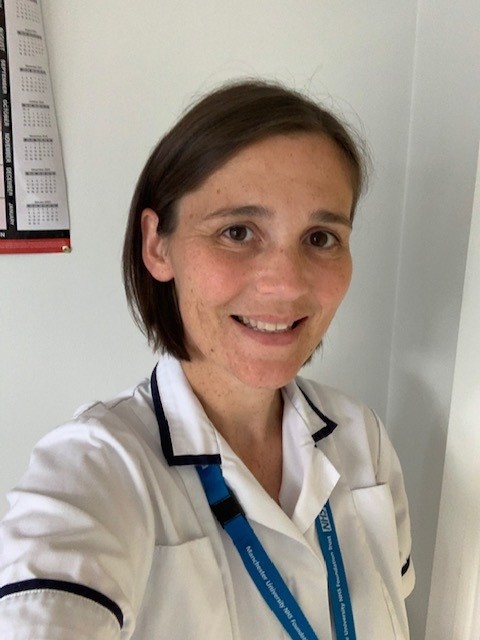 Laura McGarrigle
Laura McGarrigle
Clinical Specialist Physiotherapist - Heart and Lung Trasnplantation
Manchester University Hospitals NHS Foundation Trust
"What is the evidence for how frailty is assessed, monitored and modified for patients awaiting lung transplantation?"
- More info on Laura and her research interests
What is your current job title and current role?
I am a clinical specialist physiotherapist specialising in heart and lung transplantation. I lead a small team of therapists who care for patients from assessment for transplant, throughout their recovery in critical care and rehabilitation as an inpatient, to providing long term follow-up as an outpatient.
Who are your Pre-doc supervisors?
- Professor Chris Todd
- Professor Helen Hurst
- Dr Gill Norman
What is your field of research?
Frailty throughout the lung transplant pathway, in particular how it is assessed and treated before lung transplantation.
How are you currently involved in research in your job role?
Previously I have been involved with service evaluation projects and data collection for case series and retrospective studies.
Why are you interested in research and this ARC-GM Pre-doctoral fellowship?
I am keen to use evidence based treatments in my role, ensuring that our patients are receiving the most appropriate interventions. Working in such a rare specialist field such as transplantation, there is little evidence to inform our practice and I am keen to learn more about how my team can contribute to the evidence base. I had wonderful support from the ARC-GM during my internship and was therefore keen to continue my research learning journey within this supportive environment. I have started to develop my own research ideas and projects and the pre-doctoral fellowship will give me the time, support and structure to continue to learn and produce my own research projects.
What research training courses/modules are you accessing as part of your Fellowship?
Research design and Qualitative Design and Analysis MClin Res modules at The University of Manchester. Good Clinical Practice training.
Research question: What is the evidence for how frailty is assessed, monitored and modified for patients awaiting lung transplantation?
Research summary: During the pre-doctoral period I am planning several projects to help answer my research question
- A systematic review of the effectiveness of interventions to modify physical frailty for lung transplant candidates.
- A UK wide survey of adult lung transplant centres to discover if frailty is being assessed before lung transplantation and if any interventions are used to try and improve it whilst patients are on the waiting list.
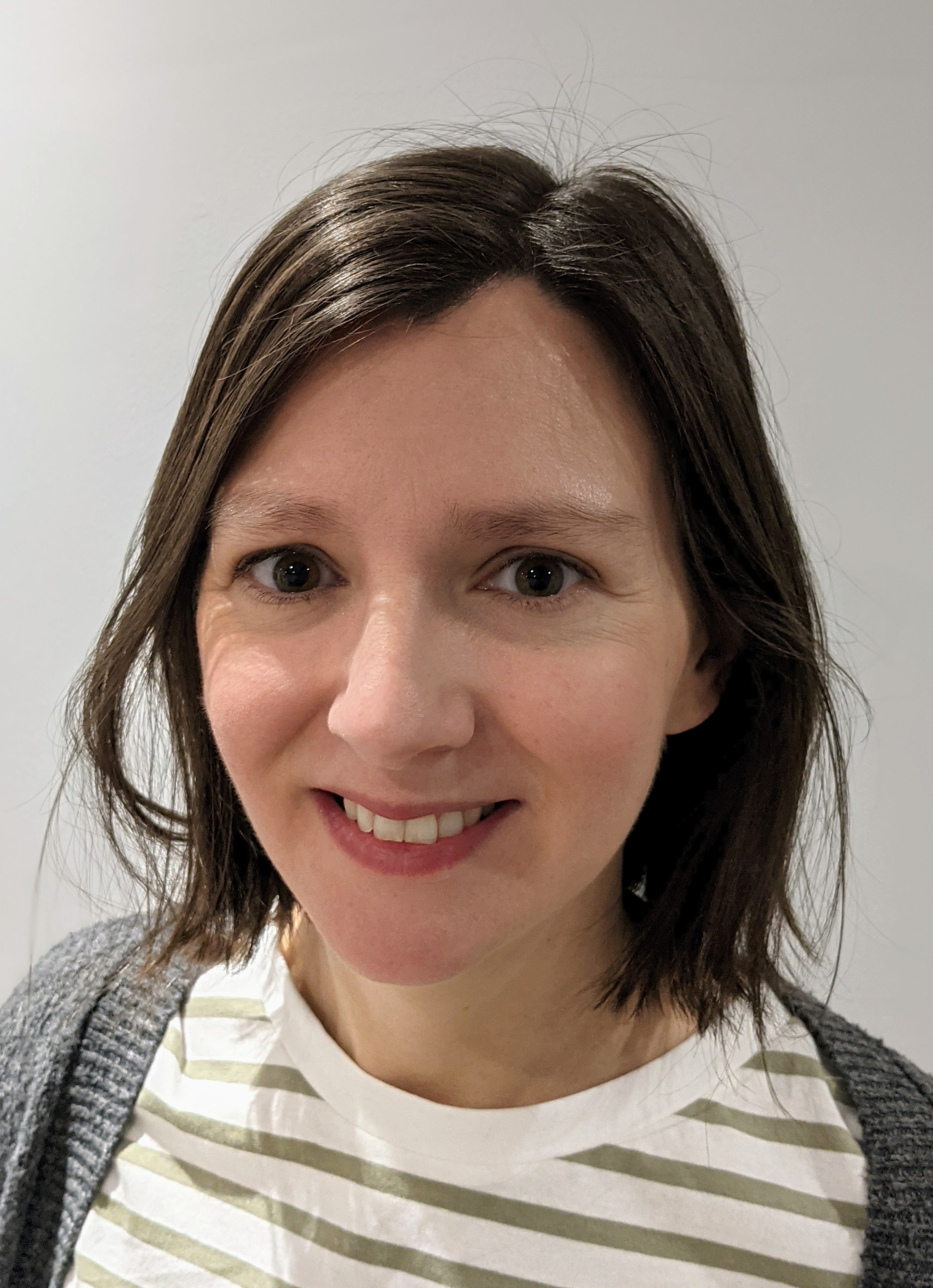 Victoria Whiteley
Victoria Whiteley
Advanced Clinical Practitioner - Ketogenic Diet Therapies
Northern Care Allliance NHS Foundation Trust
"Is ketogenic diet therapy a cost effective treatment option for children and young people with drug resistant epilepsy?"
- More info on Victoria and her research interests
What is your current job title and current role?
Advanced Clinical Practitioner in Ketogenic Diet Therapies
Who are your Pre-doc supervisors?
- Dr Sorrel Burden
- Dr Sean Gavan
- Dr Natasha Schoeler
What is your field of research?
Ketogenic diet therapy
How are you currently involved in research in your job role?
- Co-chair of Ketogenic Dietitians Research Network
- Associate research champion for allied health professionals and the childrens hospital.
Why are you interested in research and this ARC-GM Pre-doctoral fellowship?
My clinical role is demanding, but I am deeply committed to pursuing a clinical academic career and have undertaken research in my own time to help realise that ambition. The NIHR ARC-GM pre-doctoral fellowship has enabled me to ensure that a component of my job plan is dedicated to research, which has allowed me to plan my research and develop my PhD proposal.
What research training courses/modules are you accessing as part of your Fellowship?
Aberdeen University - short course in Health Economics
Research question: Is ketogenic diet therapy a cost effective treatment option for children and young people with drug resistant epilepsy?
Research summary: Epilepsy is the most common chronic neurological condition in childhood, affecting 112,000 children and young people in the UK, of which 30% are drug-resistant.Alternative treatment options for children with drug-resistant epilepsy are limited. Ketogenic diet therapy (KDT) is an important management option for drug resistant epilepsy (DRE) in children and adults. They are a group of complex diets that are high in fat and low in carbohydrate, with the aim of inducing the metabolic state of ketosis, which has been shown to be beneficial in reducing seizures with a relative risk of 3.16 of achieving seizure freedom, and 5.80 of ≥50% seizure reduction in children compared to no change in treatment. In 2021, the NICE guidelines were reviewed and NICE evaluated the cost-effectiveness of KDT and highlighted that there is a significant gap in health economic research, with no relevant cost or cost effectiveness data for the UK. A research recommendation was made by NICE to determine ‘What is the short-term and long-term clinical and cost-effectiveness of ketogenic diets in adults and children with drug-resistant epilepsy.'
With a view to addressing this research recommendation and the absence of data, I plan to complete a preliminary project to estimating the cost of implementing KDT as part of my fellowship. The next step will then be to complete a clinical and cost-effectiveness analysis of KDT compared to care as usual as a PhD.

Andrea Roberts
Advanced Clinical Practitioner - Nursing
Manchester University Hospitals NHS Foundation Trust
"The primary focus of my research and PhD proposal is admission avoidance"
- More info about Andrea and her research interests
What is your current role?
Advanced Clinical Practitioner – Nursing
I have a diverse background working in Emergency Medicine and my current role in an ACP led community urgent response team. The ethos of the team is to prevent hospital admission, by assessing and treating patients in their usual residence, where appropriate.
Who are your Pre-doc supervisors?
- Dr William Whittaker
- Dr Fay Bradley
- Dr Sarah Ramsey
What is your field of research?
The primary focus of my research and PhD proposal is admission avoidance.
How are you currently involved in research in your job role?
Service improvement with long term sustainability is a key focus of my role, recently spearheading a transformation project to facilitate early discharge from ED. I am now involved in expanded this project into a hospital at home service. My objectives are to explore the impact of hospital at home on outcomes pertinent to patient satisfaction and admission avoidance.
Why are you interested in research and this ARC-GM Pre-doctoral fellowship?
I have a keen academic interest in admission avoidance in urgent and primary care. My overall aim is to maintain and advance care standards to achieve a common goal as evidenced by the local and national drivers focused on community compassionate care.
The focus of the ‘Organising Care’ theme is aligned with my research proposal and was the theme of my ARC-GM internship.
The theme seeks to inform effective, efficient, and equitable provision of health and care. These are all elements of focus for the evaluation of the hospital at home service. Furthermore, the theme employs a mixed-methods approach to most projects, which also aligns to my proposed PhD study.
Evaluating the effectiveness of the hospital at home service has the capacity to produce outcomes that can alter the future of primary and secondary care integration. Improving patient pathways, facilitating early discharges for overcrowded ED’s, preventing admission to ED and improving patient satisfaction.
What research training courses/modules are you accessing as part of your Fellowship?
My pre-doctoral fellowship is over a 2-year period. I am currently undertaking the Mary Seacole Programme during this first year with a plan to undertake additional M level research modules during the second.
 Sophie Chalmers
Sophie Chalmers
Respiratory Speach and Language Therapist
Manchester University Hospitals NHS Foundation Trust
"What is the role of laryngeal hypersensitivity in swallowing dysfunction?"
- More info on Sophie and her research interests
What is your current job title and current role?
Respiratory Speech & Language Therapist in the Manchester Airways Service
Who are your Pre-doc supervisors?
- Prof. Jo Patterson
- Dr Sue Greenhalgh
- Dr Amy Mathieson
What is your field of research?
Upper airway dysfunction in swallowing difficulties
How are you currently involved in research in your job role?
I am actively involved in national research projects and in building research capacity through mentorship of other early stage career researchers. I am also involved at a local level in developing research knowledge and skills.
Why are you interested in research and this ARC-GM Pre-doctoral fellowship?
The pre-doctoral fellowship has provided me with the time to expand some of my existing research skills and focus these skills to be able to propose a well thought out research question and methods. This has been developed with the support of supervision and mentorship, through a range of research activities, such as a scoping review, a PPIE engagement event, and a masters module in qualitative research design.
What research training courses/modules are you accessing as part of your Fellowship?
Masters module in qualitative research and design at the University of Manchester
Research Question
What is the role of laryngeal hypersensitivity in swallowing dysfunction?
Research Summary
Through discussion with clinicians, researchers, and patients, it has come to light that awareness and understanding of laryngeal hypersensitivity in swallowing dysfunction has had little attention in the literature, leading to variability in patient experience of care and outcomes.
My research question has significantly changed since starting the pre-doctoral fellowship as I began speaking with key stakeholders about their perceived research priorities and areas in need of further exploration and development.
The first step of my research is a scoping review looking into the terminology and assessment tools we use when managing laryngeal hypersensitivity with concurrent swallowing dysfunction. A PPIE event will help shape the key research priorities in this field for future research planning,